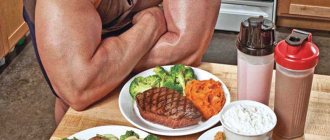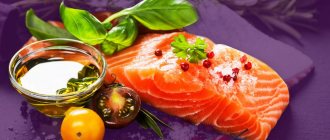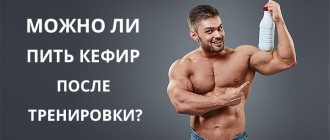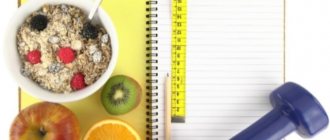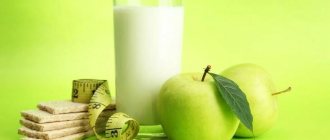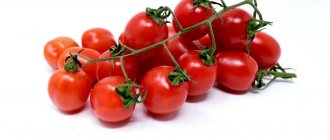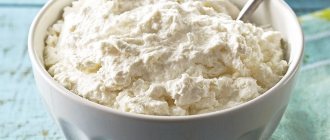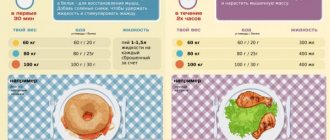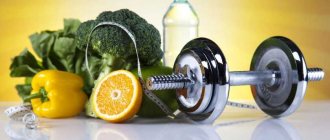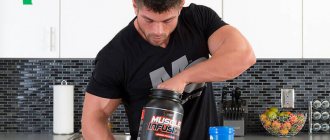Nutritional value of cottage cheese
The composition of cottage cheese consists of carbohydrates, proteins, vitamins, and minerals. The main part of cottage cheese consists of casein, a protein whose digestibility can take up to 4 hours. As a result, cottage cheese can provide energy for up to 5 hours.
Depending on the cooking method and fat content, cottage cheese contains approximately 50% casein. In fatty cottage cheese, casein reaches 60%. The rest of the protein mass belongs to quickly breaking down proteins, which is why cottage cheese is recommended after completing a heavy intense workout.
Cottage cheese, in addition to nutrients, contains a lot of calcium, which is so necessary for the muscles and bones of an athlete. The nutritional value of cottage cheese also differs in the content of a large number of minerals and vitamins: vitamins A, B, C, PP; calcium and phosphorus, sodium, iron, potassium, magnesium and some zinc.
How much cottage cheese to eat after training?
If you use the product immediately before intense physical activity, the recommended serving is 200 grams. This amount is enough to recharge your batteries and exercise at full capacity. A banana can also be an excellent pre-workout fuel.
To provide yourself with the daily requirement of protein, you need to eat about 500 grams of the product, dividing this portion into several meals.
As for cottage cheese at night, after training you should limit yourself to 150 grams of dairy product. Such a dinner, supplemented with kefir or low-fat sour cream, will help the body absorb amino acids in full, and therefore form muscle mass.
Cottage cheese while gaining weight
Cottage cheese is an excellent way to gain weight, because it contains a lot of healthy protein. However, it is advisable to limit yourself to the low-fat version and use homemade separator cottage cheese. A natural product is preferable when gaining muscle mass, as well as for lifters. Curd masses from the store contain a large amount of soy.
If you are using a non-fat product, try to consume it before training. While gaining weight, you can eat a lot of cottage cheese with virtually no restrictions.
Which cottage cheese to choose after training?
There is an opinion that after training you need to eat low-fat cottage cheese. This statement is fundamentally incorrect, since the complete absence of fats in the product leads to the fact that calcium is simply not absorbed from it. It will also not be possible to burn excess weight on cottage cheese devoid of lipids: without fat, the hormones responsible for getting rid of extra pounds are not activated, which means the weight loss process does not start.
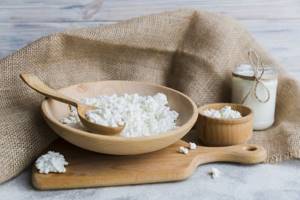
Low-fat cottage cheese is an empty, useless dairy product, so it is better to give preference to the 1% or 2% (maximum 5%) option, which perfectly saturates, saving you from obsessive hunger. The product prevents overeating and helps you adhere to healthy eating rules without self-abuse.
Naturally, when we talk about cottage cheese, we mean a pure natural dairy product, and not a sweet curd mass or cheesecakes with added sugar.
Cottage cheese during weight loss
During the period of weight loss, a low-fat curd product is preferable, because the bulk of proteins should be obtained from low-fat sources. Portions of cottage cheese should be reduced, the number of meals should be increased. It must be consumed several hours before classes, but it is not recommended to eat food within 2-3 hours after the end of classes, since during this time metabolic processes will destroy free fat molecules in the blood released from fat cells. If nutrition is supplied, the body will return all free fats to the tissues.
Is it possible to eat cottage cheese after a workout?
Yes, you can eat cottage cheese both before and after working out in the gym. The product perfectly satisfies hunger, gradually charging you with energy and without leading to harmful spikes in insulin in the blood. In addition to “supplying” the body with the protein necessary for muscle growth, cottage cheese:
- Prevents the development of osteoporosis (bone disease resulting from a lack of calcium);
- Helps in the formation of hemoglobin;
- Positively affects the speed and intensity of metabolism;
- Normalizes the state of the nervous system;
- Strengthens bones, nails, hair and teeth;
- Saturates with vitamins and minerals;
- Regulates blood pressure.
Important note: cottage cheese should not be eaten immediately after training; it is recommended to wait 30 to 50 minutes. If you consume the product immediately after exercise, the body will stop burning its own accumulated fat, which will negatively affect the productivity of the workout. In fact, after intense physical activity, you should not eat anything at all for half an hour. Water is another matter: you need to drink it until you completely get rid of the feeling of thirst.
How to make homemade cottage cheese
Homemade cottage cheese consists of three simple ingredients: milk, vinegar and salt.
You will need:
- 3 liters of whole milk, unprocessed;
- ¾ cup white vinegar;
- 1 teaspoon salt;
- 1/2 cup heavy cream.
Preparation:
- Pour the milk into a large, heavy-bottomed saucepan. Heat slowly, stirring regularly to prevent the milk from burning at the bottom of the pan.
- Remove from heat, pour in vinegar and stir several times. Cover and leave for 30 minutes.
- Meanwhile, line a colander with a clean piece of double cheesecloth or tea towel. Place a colander over another bowl to catch any dripping liquid (whey).
- Place the solids from the pot into a colander. Let drain for 30 minutes.
- Gather the ends of the cloth tightly together and form a ball of cheese wrapped in the cloth. Holding this in one hand, run cold water through the cheese ball and knead and squeeze it with the other hand until the entire cheese ball is cool.
- Place the cloth cheese in a bowl and use a spoon to break it into small curds. Add salt to taste.
- For cream cheese curds, add 2 tablespoons of heavy cream at a time until it reaches the desired consistency. Check the taste and add more salt if necessary.
- Refrigerate for at least 1 hour, then stir before serving.
Advice! Don't throw away whey - it contains a lot of protein. Store it in the refrigerator or freeze it for use in soups, stews and smoothies. You can also use it instead of water when baking bread or desserts. Or pour onto hair for deep conditioning.
Nutrition for weight loss after exercise
In this section we will talk about what to eat after training if your goal is quantity rather than quality. In other words, if the decrease in the treasured numbers on the scales is more important to you than the quality of the figure being formed. In this case, there are two main options:
- Severe hunger strike for two hours after classes. This is not a very constructive approach, but it has a right to exist. Since physical activity triggers the fat-burning mechanism, the absence of any nutrition in the first hours after it will allow the body to burn hated fats to the maximum. In this case, restoration, growth, and increase in muscle strength will not occur. And don’t forget that you need to drink after a workout even if you choose this diet (prefer plain water to other drinks).
- Consume approximately half of the calories burned within the same two hours. Diet recommendations in this case are similar to those listed earlier (proteins and carbohydrates, avoidance of fats and caffeine). Such nutrition will somewhat slow down the process of burning fat, since the body will receive an additional source of energy - the food just eaten. However, at the same time, you will also take care of your muscles, even if not bringing them to an ideal state, but giving them the opportunity to effectively recover and acquire a beautiful shape.
Benefits of cottage cheese for bone health
In addition to the beneficial effect on muscles, curd products also help strengthen bone tissue. This is due to the high content of various beneficial microelements:
- calcium, iron, zinc, potassium, sodium and others;
- complex of vitamins (A, B, C, PP and so on);
- still the same natural protein.
Thus, consuming cottage cheese after training allows you not only to build muscle mass, achieve ideal relief and lose weight quite quickly, but also helps strengthen the skeleton and bone tissue. Which, in turn, allows you to increase the effectiveness of sports training and avoid the risk of injury and many diseases.
Composition of cottage cheese
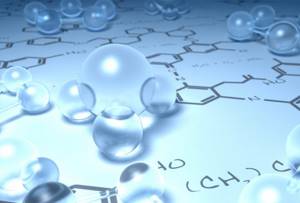
Cottage cheese can also be prepared at home. For this you will need sour milk. But is it worth bothering when the industry produces a high-quality product in a wide range and in sufficient quantity. Regardless of the manufacturing method, cottage cheese is considered one of the healthiest products, as it is rich in proteins, amino acids and microelements. It includes:
- "slow" protein casein
- "fast" protein
- magnesium
- potassium
- calcium
- sodium
- phosphorus
- iron
- methionine
- carotene
- vitamins of groups A, B, C, PP
- carbohydrates
- fats.
The fat level in cottage cheese is very important for product classification.
If it is within 18-22%, the cottage cheese is considered fatty; 7-9% – bold; less than 3% – low-fat. Bodybuilders tend to prefer low-fat cottage cheese because protein, not triglycerides, is very important for gaining muscle mass. And 100 grams of low-fat cottage cheese contains from 18 to 20 grams of protein.
The benefits and harms of cottage cheese
Let's take a closer look at the beneficial and harmful properties of cottage cheese.
The benefits of cottage cheese for an athlete
The benefits are expressed by the following points:
- It is a source of high-quality and inexpensive protein of animal origin . In bodybuilding, proteins of animal origin are considered complete. Read about the nutritional value of vegetable protein here;
- Contains casein, which is necessary for an athlete before bedtime . Casein protein is more expensive than regular protein. Cottage cheese is the cheapest source of casein;
- It is a source of vitamins and minerals , without which muscle growth is impossible, and the athlete’s health deteriorates. Cottage cheese contains B vitamins, calcium, phosphorus, selenium and other minerals;
- Cottage cheese in bodybuilding acts as a healthy food . Improves digestion, speeds up metabolism. Contains amino acids that help improve mood and improve performance;
- Improves health . All body systems function better, including the brain.
Harm of cottage cheese for an athlete
- Cottage cheese contains a lot of proteins . This is cool for a bodybuilder and any athlete. But only healthy ones. A high amount of protein becomes a factor that will significantly worsen your life if you have diseased kidneys. The harm lies not in the cottage cheese, but in the protein, which should not be consumed in high quantities if you have diseased kidneys. Bodybuilders consume 2 or even 3 grams of protein per kilogram of body weight. Healthy kidneys can withstand 2 grams, but sick kidneys “slip” even from a gram;
- The harm of cottage cheese is the development of a disease such as acne . Again, we are talking about a high amount of protein. Here we are talking about genetics, predisposition to skin diseases;
- Risk of running into a fake . They are minimal, but it is better to check the cottage cheese for fake using the method below. Unscrupulous manufacturers use starch instead of the product in question. Sometimes palm oil is added. This is rare, but worth considering.
Benefits of cottage cheese with honey
It’s worth starting with the fact that honey is a treasure trove of all useful substances. It contains biologically active substances, antioxidants, minerals and vitamins. Honey improves metabolism, has a slight thermogenic effect and helps improve immunity. Despite the high sugar content, honey is the only product that can safely be called dietary.
By consuming just one spoon of honey at night you can ensure a restful sleep. Due to its qualities, this product is not at all harmful to the figure. On the contrary, it promotes weight loss.
The combination of cottage cheese and honey is an excellent option for weight loss. A serving of this dessert provides the body with a sufficient amount of glucose. The brain picks up a signal that the food was rich. And at this time, saturation with proteins and calcium occurs.
The optimal proportion of the combination of cottage cheese and honey is: two tablespoons of honey per two hundred grams of cottage cheese. The daily intake of cottage cheese for an adult is two hundred grams.
The calorie content of such a delicacy depends on the choice of fat content of cottage cheese.
The benefits of cottage cheese during training
In addition to the protein and carbohydrates necessary for training, cottage cheese contains a large amount of useful substances.
- Iron.
- Potassium.
- Calcium.
- Magnesium.
- Copper.
- Sodium.
- Phosphorus.
- Fluorine.
- Zinc.
- Vitamin A.
- B vitamins.
- Vitamin C.
- Vitamin E.
- Vitamin RR.
The energy value of cottage cheese is about 226 kcal per 100 g of product (fat cottage cheese is higher in calories compared to low-fat and fat-free varieties of the product). The use of the product is indicated for athletes, people suffering from obesity, atherosclerosis, hypertension, liver, kidney and heart diseases. Regular consumption of cottage cheese helps restore the nervous system and promotes the formation of hemoglobin. Fermented milk product is necessary to strengthen the musculoskeletal system, teeth, nails and hair.
When is the best time to consume cottage cheese with honey?
A dessert of cottage cheese with honey can be eaten for breakfast. You will get a complete meal that will help keep the body light and at the same time satiate it. Of course, the product must be of high quality, without the addition of palm oil. Otherwise there will be no benefit.
Exercising and fasting are completely incompatible. Proper nutrition is an essential component of a healthy lifestyle. And even if you want to lose weight, you must follow this rule.
After training, the body develops an energy deficit that requires replenishment. During physical activity, a large loss of moisture occurs, so you should not limit yourself in water intake. And to restore muscle tissue, proteins are also needed.
For this purpose, you can eat low-fat cottage cheese with the addition of dried fruits and two tablespoons of honey. This dessert will not harm, even if the workout takes place late in the evening and after it you plan to sleep at night. The benefits of honey and cottage cheese before bed were mentioned above.
It is necessary to remember that cheese curds, curd masses and cottage cheese in combination with sour cream are completely unsuitable for people who want to lose weight. Moreover, products containing artificial additives will not benefit the body.
Why do athletes respect cottage cheese?
Cottage cheese is prepared from whole or reconstituted cow's milk, which contains everything necessary to support our existence, otherwise the calves, who do not receive any other food, would not survive. Even if you are not a fan of milk, you should love cottage cheese at least for its high content of complete protein - from 14 to 17%, depending on the raw materials and processing method.
On average, you can expect 20 grams of protein per 100-gram serving. Here is the answer why athletes need cottage cheese - in fact, it is a ready-made protein concentrate for weight gain, only several times cheaper than sports nutrition.
Up to 50–60% of curd protein is casein, which is digested within 4–5 hours and quenches the feeling of hunger for a long time. It comes with slow carbohydrates and easily digestible fats, which facilitate the breakdown of casein and feed us with calories - enough for an active life and productive workouts, there is no left for fat deposits.
Even in childhood, grandmothers and mothers managed to explain to us how cottage cheese is good for bones and tooth enamel - it contains a lot of calcium. One package of about 200-250 grams per day covers up to 13-15% of the daily calcium requirement of a moderately active adult. In addition, cottage cheese is rich in potassium, phosphorus, sodium, zinc and magnesium, which are involved in the regulation of muscle contractions and the transmission of nerve impulses.
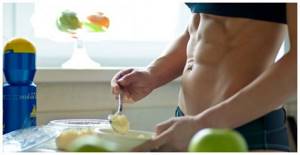
Potassium is vital for the prevention of arrhythmia, and zinc and magnesium, combined with a full complement of water-soluble B vitamins, promote the formation of new neuromuscular connections and the development of mental endurance. Fat-soluble vitamins include retinol and ascorbic acid - strong antioxidants responsible for the good condition of the skin and mucous membranes.
Casein protein
